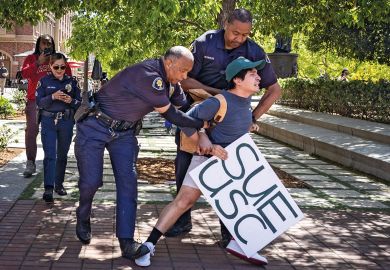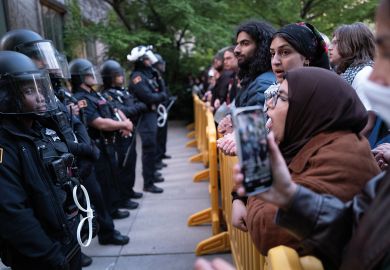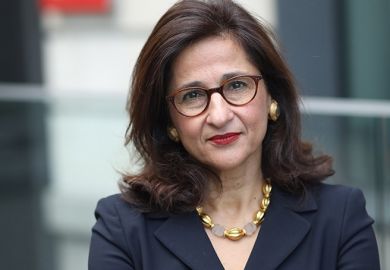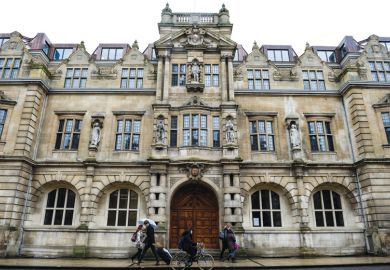US congressional Republicans are opening yet another front in their war on academic independence, suggesting that a leading scholarship is biased because the winners often propose topics seen as interesting to political liberals.
Leaders of the House education committee, already waging a battle with US university leaders who they see as too tolerant of student protesters, complained to the head of the federally funded Truman Scholarships that the nearly half-century-old programme “favours liberals” by a 10-to-one margin.
The lawmakers based their accusation on the findings of a conservative thinktank, the American Enterprise Institute, which issued a report earlier this month contending that it discovered the bias with both the Truman Scholarships and the UK-based Rhodes Scholarship.
“We refuse to believe that only liberal students demonstrate ‘outstanding potential’ in public service,” the lawmakers, led by Virginia Foxx, the chair of the House education committee, said in a letter to Terry Babcock-Lumish, the executive secretary of Harry S. Truman Scholarship Foundation, which operates the US-financed scholarship.
“As a publicly funded award charged with preparing the civic leaders of tomorrow, the Truman Scholarship should, at a bare minimum, be reflective of the country’s breadth of values, viewpoints and interest,” Ms Foxx and two colleagues wrote.
The AEI, in its report, said that just six of 182 Truman Scholars over the past three years “expressed interest in a right-leaning issue in their programme biography”. Just one of 157 Rhodes Scholars from the US did so over the past five years, the AEI said.
“Moreover, the nature of their interest suggests that even these seven scholars aren’t especially conservative,” the group says in its report. In particular, it notes that while 98 scholars chosen by the two scholarship programmes cited an interest in such topics as immigrant rights, diversity, equity and racial justice, “just four mentioned an interest in religious freedom or pro-life advocacy”, it said.
Dr Babcock-Lumish said the Truman Scholarship Foundation has a “rigorous selection process based solely on applicants' demonstrated commitment to public service, leadership potential and academic excellence”.
Tara Yglesias, the foundation’s deputy executive secretary, responsible for its scholar selection process, faulted the AEI analysis as having “broadly characterised issues as conservative or progressive with very little justification”.
“We were concerned it divided our scholars into competing factions when most scholars would prefer to remain focused on issues of interest to them,” Ms Yglesias told Times Higher Education. “We do not ask for a scholar’s political stance and often do not know where their beliefs lie.”
The AEI did not respond to questions about its analysis.
About 60 US college juniors win a Truman Scholarship each year. About 100 applicants win a Rhodes Scholarship for study at the University of Oxford.
Ms Foxx has led her committee in two high-profile hearings on Capitol Hill at which she and other conservative lawmakers subjected four female presidents of top US universities to hours of demands that they silence students protesting on behalf of Palestinian civilian victims of Israel’s military bombardment of Gaza. It plans a third such hearing this week with the leaders of the University of California, Los Angeles, Northwestern University and Rutgers University.
Register to continue
Why register?
- Registration is free and only takes a moment
- Once registered, you can read 3 articles a month
- Sign up for our newsletter
Subscribe
Or subscribe for unlimited access to:
- Unlimited access to news, views, insights & reviews
- Digital editions
- Digital access to THE’s university and college rankings analysis
Already registered or a current subscriber?








